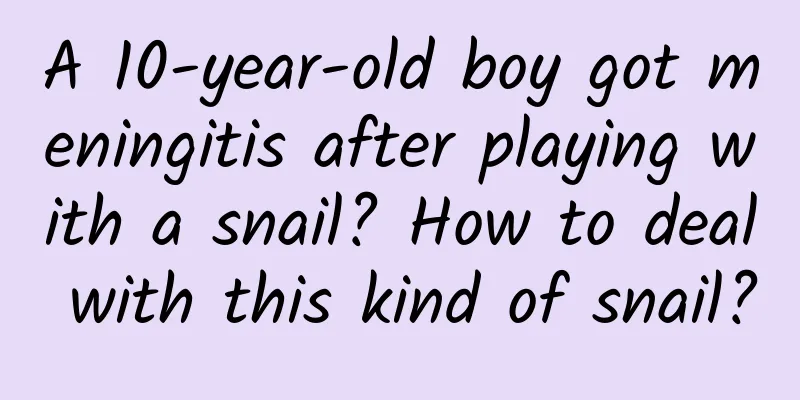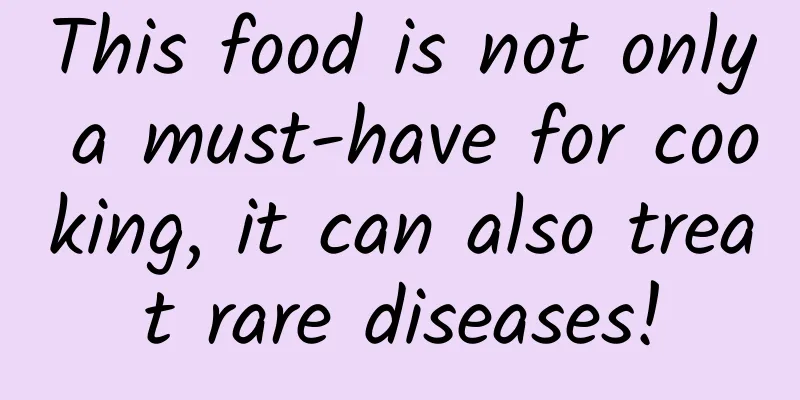A 10-year-old boy got meningitis after playing with a snail? How to deal with this kind of snail?

|
Today, a news report about a 10-year-old boy contracting meningitis after playing with a snail became a hot topic. Fortunately, the child is out of danger and has recovered and been discharged from the hospital... But this is indeed quite scary. What kind of snail did the child get sick with? How should we deal with them? From Weibo The giant snail mentioned in this message is the one in the photo below. Not only can it make people sick, it is also a genuine harmful species. Tuchong Creative 01 What kind of snail is this? The snail involved in the news event is commonly known as the "African giant snail". Its scientific name is Achatina fulica. As its name suggests, it is native to Africa. It is a notorious invasive species and a Class II quarantine pest for entry and exit of the country. It is a pest that should be eliminated. This snail has an amazing appetite. It can eat food equivalent to half its own body weight every day. It is not picky about food and will eat almost anything, including fruits, vegetables, and plant seedlings. When it is extremely hungry, it will even eat the corpses of its own kind. Not only do they have a good appetite, but their size is also amazing. The African giant snail usually weighs 400 grams, and the largest can even grow to 750 grams, that's right, one and a half pounds! The size is about the same as an adult's fist, and some can even be more than 20 centimeters long. One can crawl all over your palm. Tuchong Creative Being so big and gluttonous, it naturally becomes the natural enemy of crops. In many provinces in southern my country, the footprints of giant African snails can be seen, and more than 500 kinds of crops have been attacked by them. What's more, giant African snails are very fertile, laying more than 600 eggs a year, sometimes even up to 1,200 eggs, which is simply a crawling breeding machine. Moreover, they have strong vitality and can survive the dry season by secreting mucus to block the shell opening. Fortunately, these big snails, like other snails, have a fatal weakness, which is that they crawl slowly. Their spread mainly depends on human cargo, which has somewhat limited their spread. Tuchong Creative 02 Not only can't eat, but also can't play After introducing so much, some foodies can't wait to say: look at the performance of this giant African snail, big = more meat, slow crawling = easy to catch, isn't this a gift from God? Let's go eat it! Wait a minute. If the giant African snail is properly farmed and quarantined, it is okay to eat; but if it is wild, don’t even touch it, let alone catch it and take it home to cook! Tuchong Creative Although these snails look chubby and harmless, they are actually intermediate hosts for many pathogens and can spread many diseases. For example, Angiostrongylus cantonensis can infect giant African snails. If people come into contact with or eat them undercooked, they may be infected by the Angiostrongylus cantonensis on the snails, leading to eosinophilic meningitis. The child who was on the hot search this time unfortunately suffered from this disease. 03 You can kill it, but don't step on it. Knowing this, I'm sure everyone would want to crush this giant snail with one foot, not to mention eating it... Wait again. Tuchong Creative Just think about it, the giant African snail is such a big piece of meat, and when you step on it, how many pieces will be stuck on the sole of your shoe and taken home... There may be parasites in it, which is very difficult to clean up, so we have to change the method. In fact, it is also very simple, don't touch the snail directly, sprinkle some salt on it, which is a good way to kill snails. However, I would like to dispel a rumor here. Many people say that snails will turn into a pool of water if they are sprinkled with salt, but this is not actually the case. Snails do have a lot of water in their bodies. When salt is sprinkled on them, a lot of water will escape from their bodies, causing the snails to dehydrate and die. However, snails do not have only water in their bodies. Even if they die of dehydration, they will only leave behind a shrunken body, not a pool of water. In conclusion, the giant African snail is an invasive species that can carry a variety of pathogens. It should neither be eaten nor touched. Sprinkling salt can kill it, and quicklime is often used for large-scale prevention and control. In areas where this snail is distributed, friends with children at home must "scare" their children well and don't let them curiously play with this snail. Tuchong Creative References: [1] Zhou Weichuan. Study on the population biology of African giant snail [J]. Plant Protection, 2006, 32(2):86-88. [2] Wang Daichang. Biological characteristics and control methods of African giant snails[J]. China Agricultural Technology Extension, 2005. [3]Crook RJ, Walters ET. Nociceptive behavior and physiology of molluscs: animal welfare implications. ILAR J. 2011;52(2):185-95. doi: 10.1093/ilar.52.2.185. PMID: 21709311. Author | Ding Zong Review | Wang Dehua, Researcher, Institute of Zoology, Chinese Academy of Sciences This article is produced by the "Science Rumor Refutation Platform" (ID: Science_Facts). Please indicate the source when reprinting. The pictures in this article are from the copyright gallery and are not authorized for reproduction. |
<<: Tulip: I am extremely beautiful and priceless, all because of a "serious illness"
>>: Yogurt really helps digestion! But it's not what you think...
Recommend
Plant 15 anti-hunger trees and you won't have to worry about food for a year | Nature Trumpet
Welcome to the 32nd issue of the Nature Trumpet c...
Double awards! Jiyue won the Automotive Industry Summit Award again, highly recognized by international authoritative organizations
The recognition of a product by an international ...
Who is forcing us to watch 3D movies?
The reporter watched 12 movies in theaters in the...
Xunlei Kankan CEO: This is how you should analyze user needs!
There is no need to elaborate on how important us...
Volvo's first-half performance was the best in history, with a valuation of US$12 billion to US$18 billion, lower than Li Shufu's expectations
On July 19, Volvo Car Group released its financia...
Analysis and construction guide for advertising and marketing pages in the automotive industry!
This article provides you with a guide to buildin...
Do you want to pee as soon as you enter the swimming pool? ! How much urine is there in the swimming pool?
This summer, the heat is unbearable all over the ...
9 key points of event planning!
This article will explain one by one how to carry...
How much does it cost to be an agent of Wuxi Home Improvement Mini Program? What is the price of being an agent for Wuxi home improvement mini program?
Why should you be an agent for WeChat Mini Progra...
10 basic skills necessary for operating Douyin
Douyin became a huge hit like a bolt from the blu...
The tenth episode of the Aiti Tribe Clinic: How to learn Python? The method is very important
【51CTO.com original article】 Activity description...
Stay tuned! What should you do if you are assaulted or sexually harassed? You must know these things
Expert of this article: Zhu Guangsi, science writ...
How much more is Huang Zheng’s wealth than Jack Ma? How much is Huang Zheng worth?
Huang Zheng's net worth exceeds Jack Ma Pindu...
Upgrading in repeated “outs”? Uncovering the “secrets” behind communication security!
With the rapid development of information technol...
React chapter of the front-end interview handbook, dismantling the real interview questions of large companies and conquering the core test points of React
React chapter of the front-end interview handbook...









